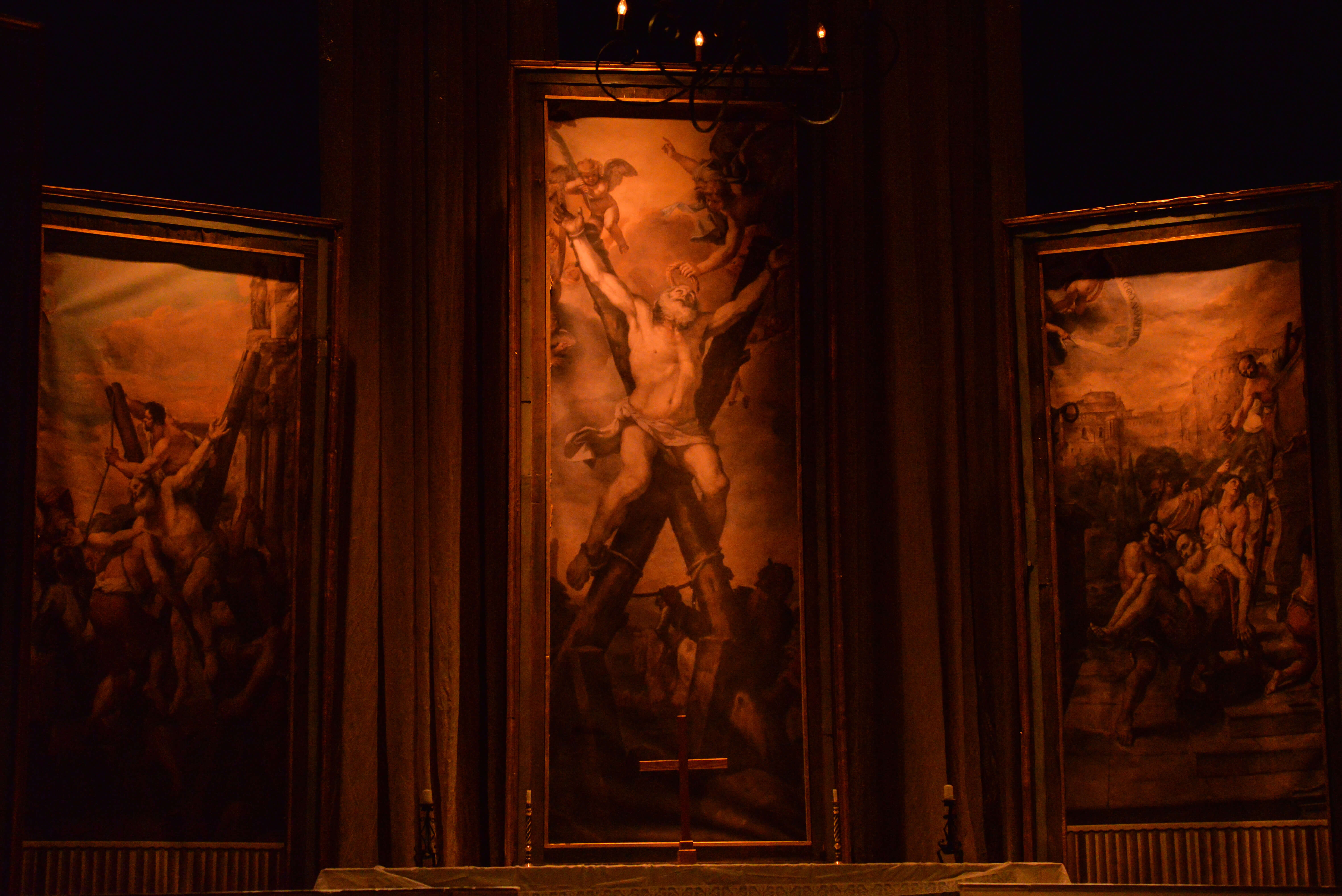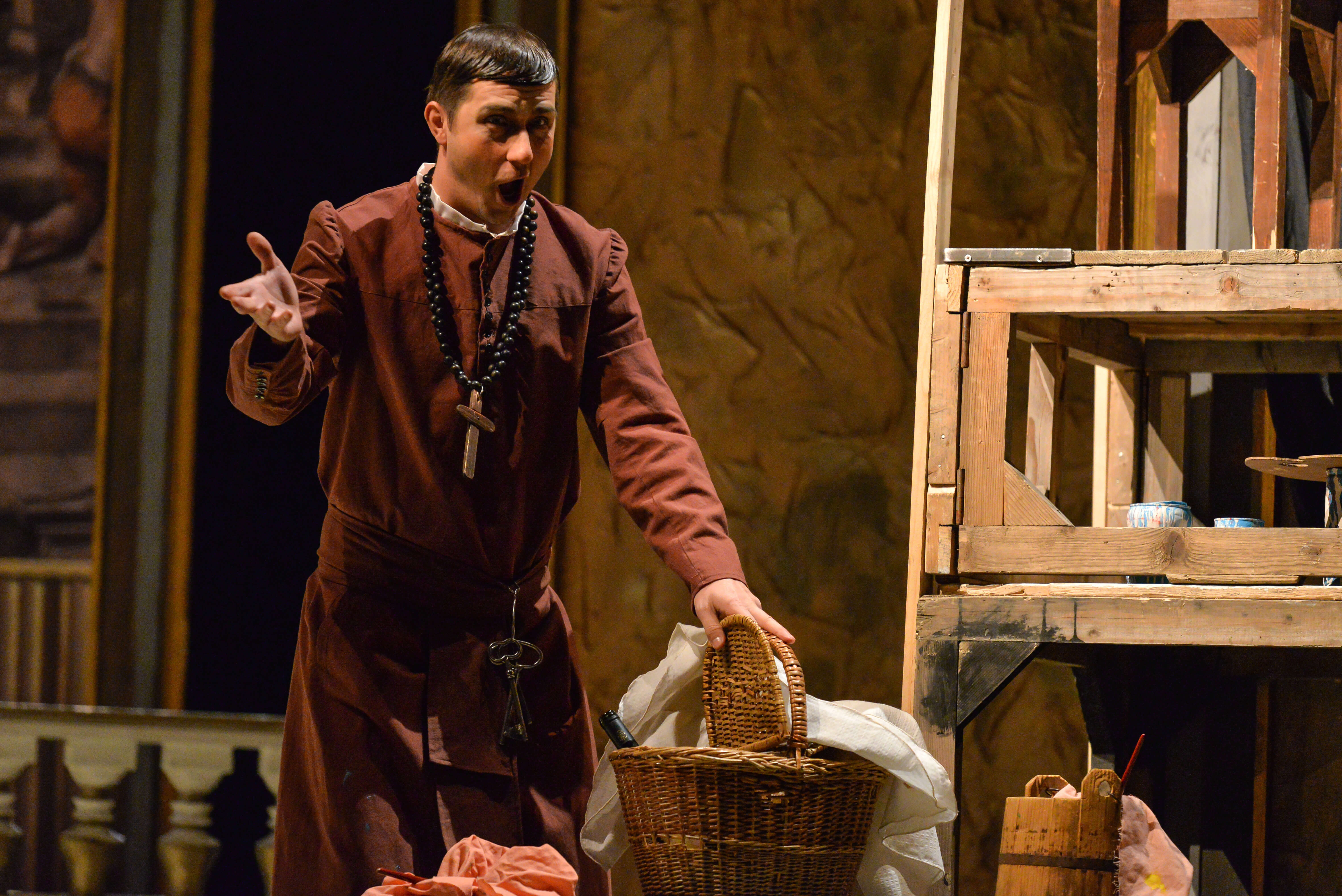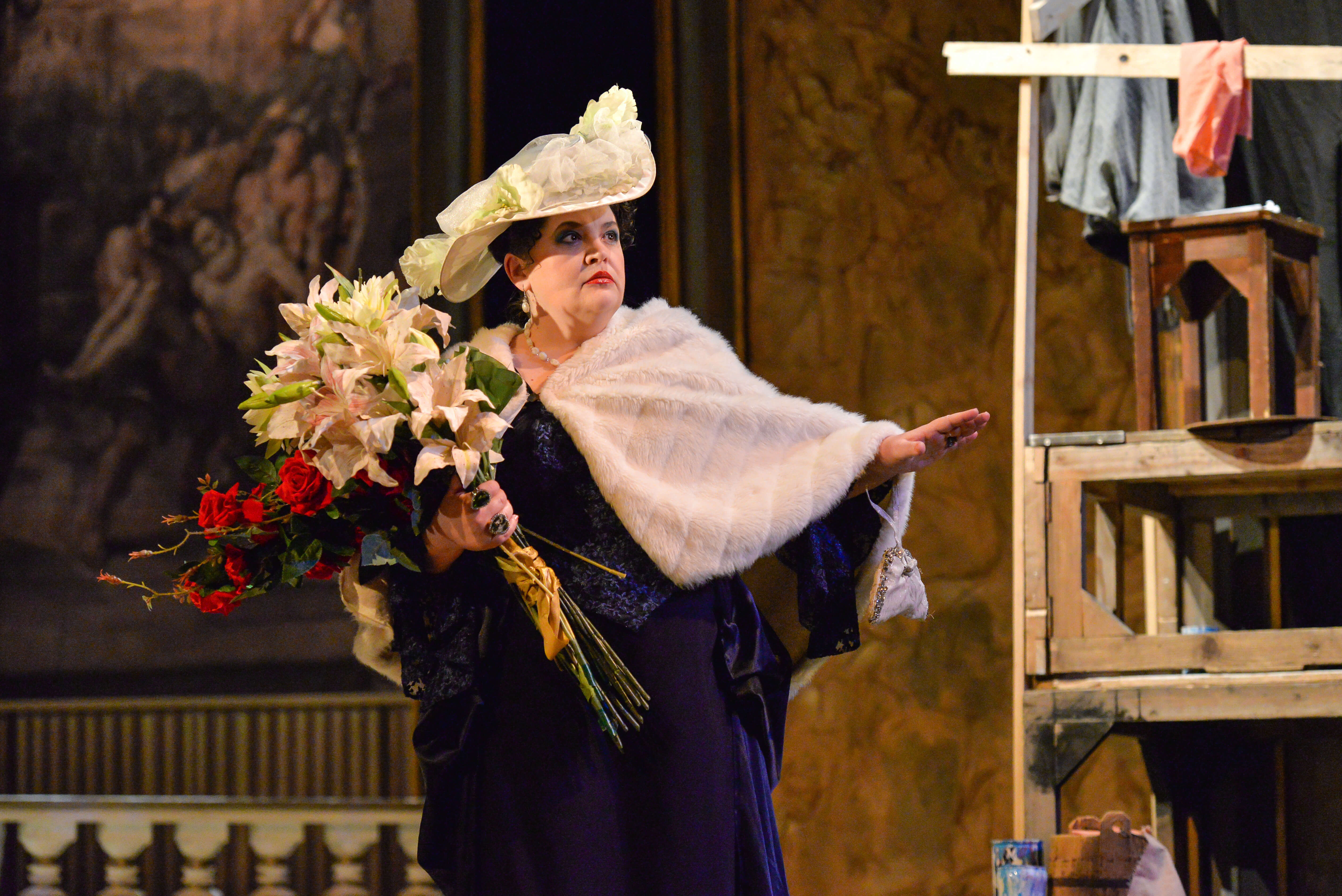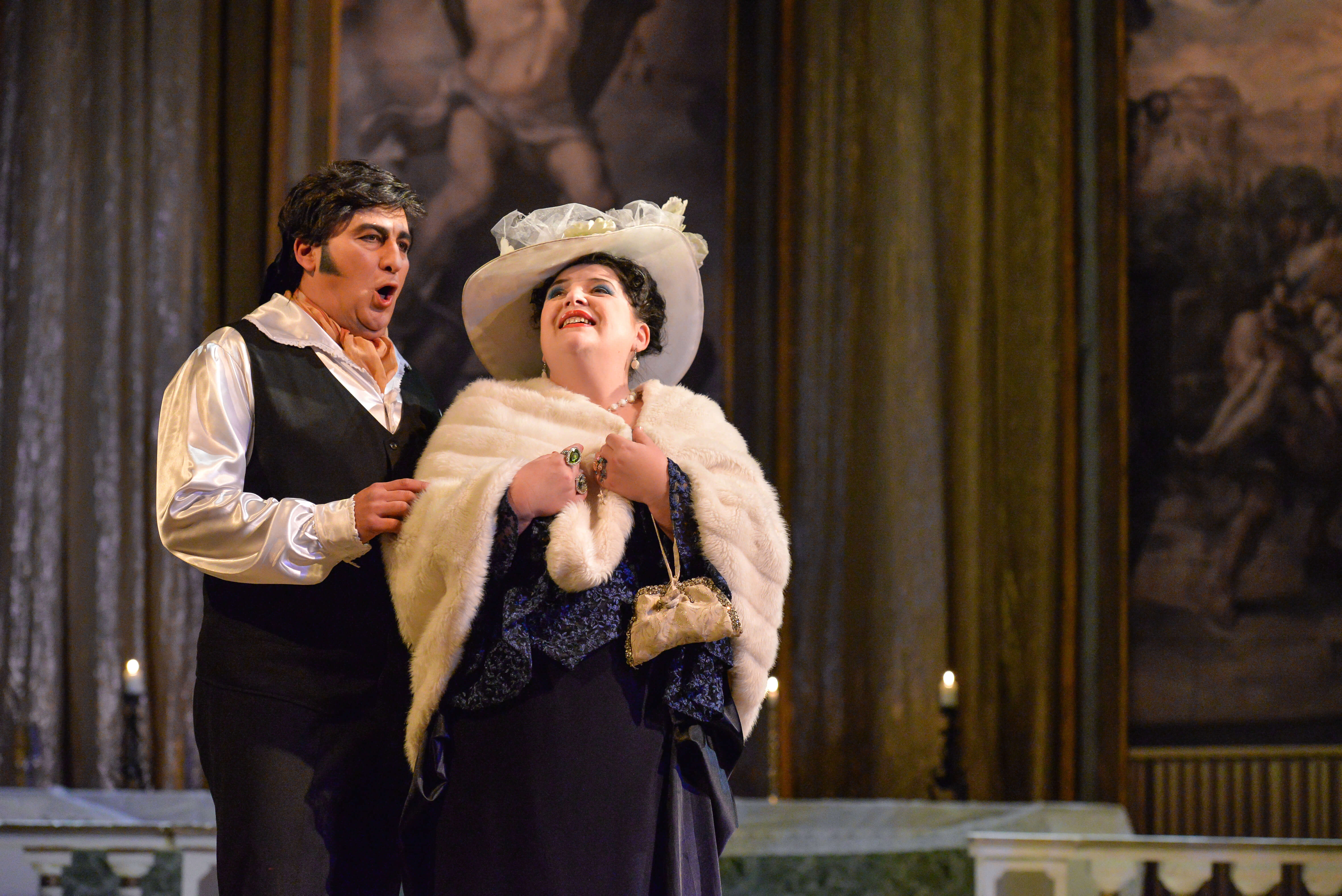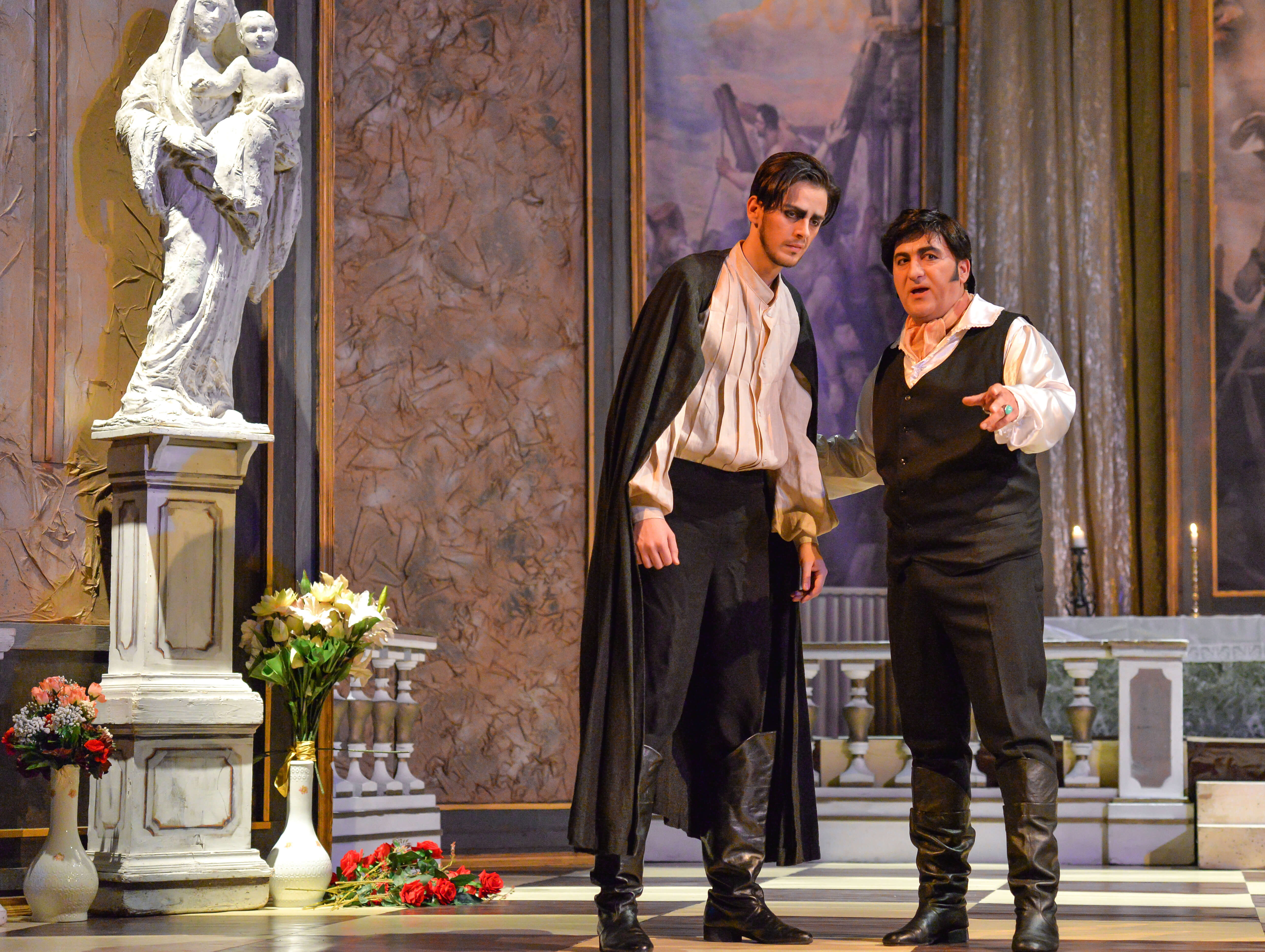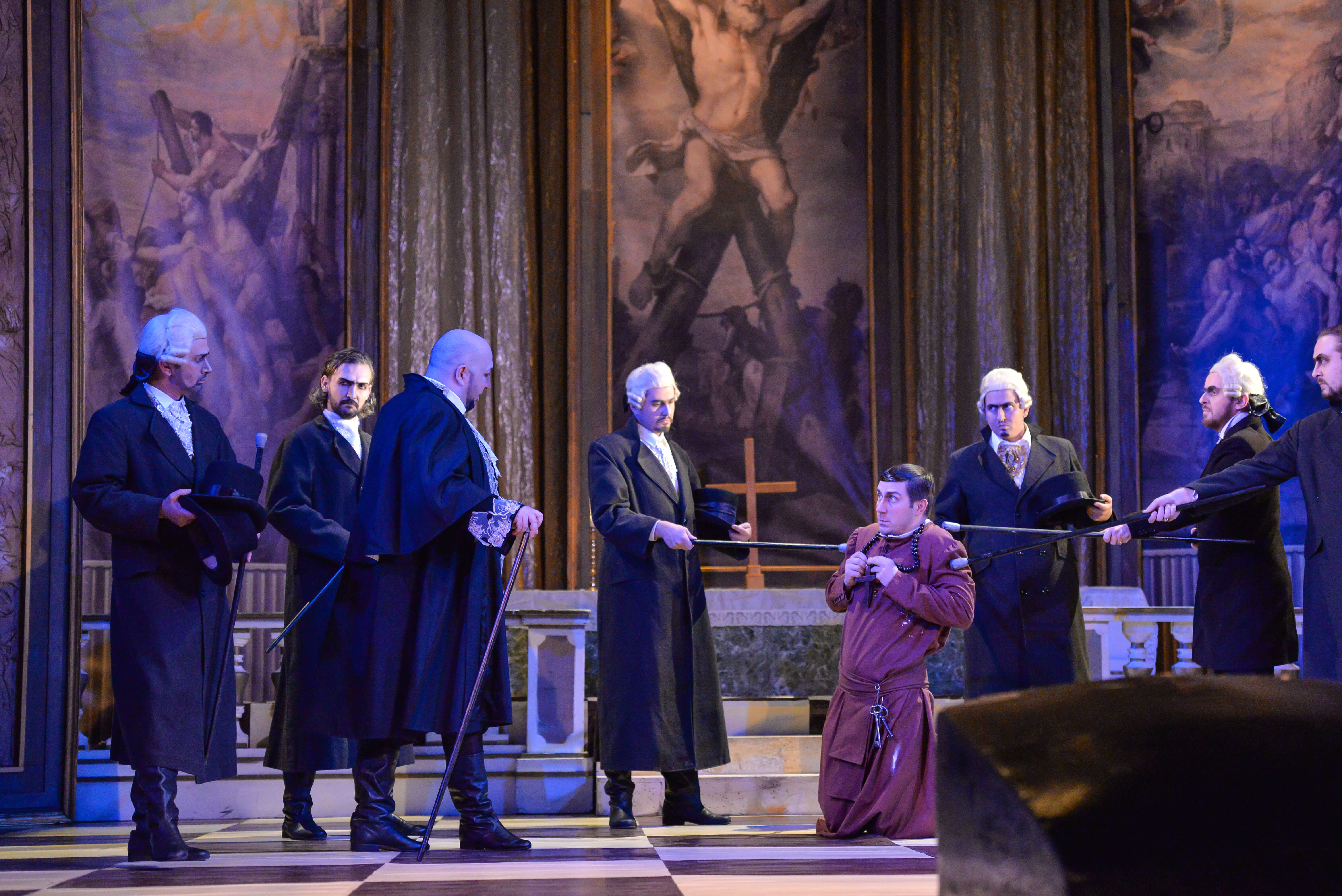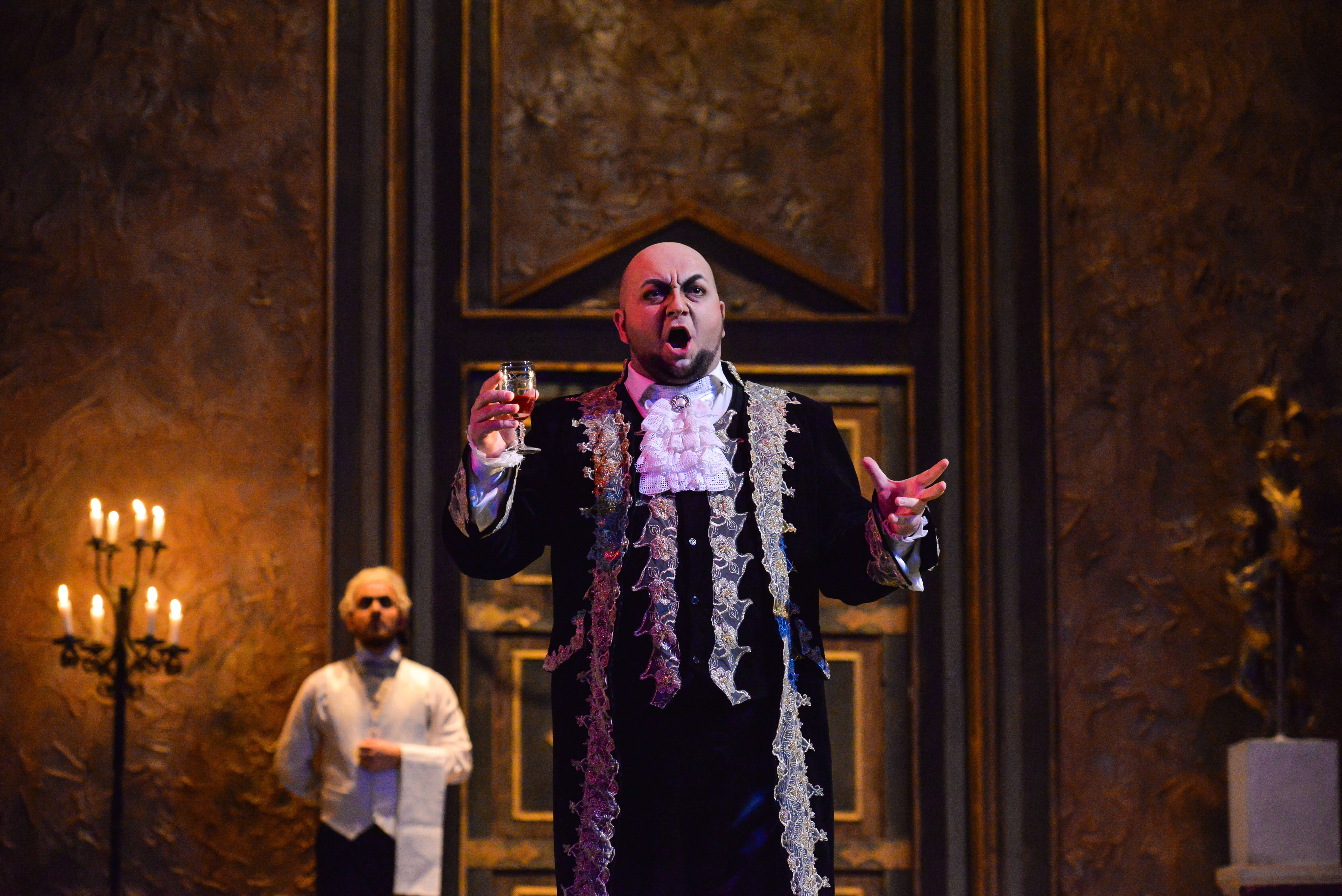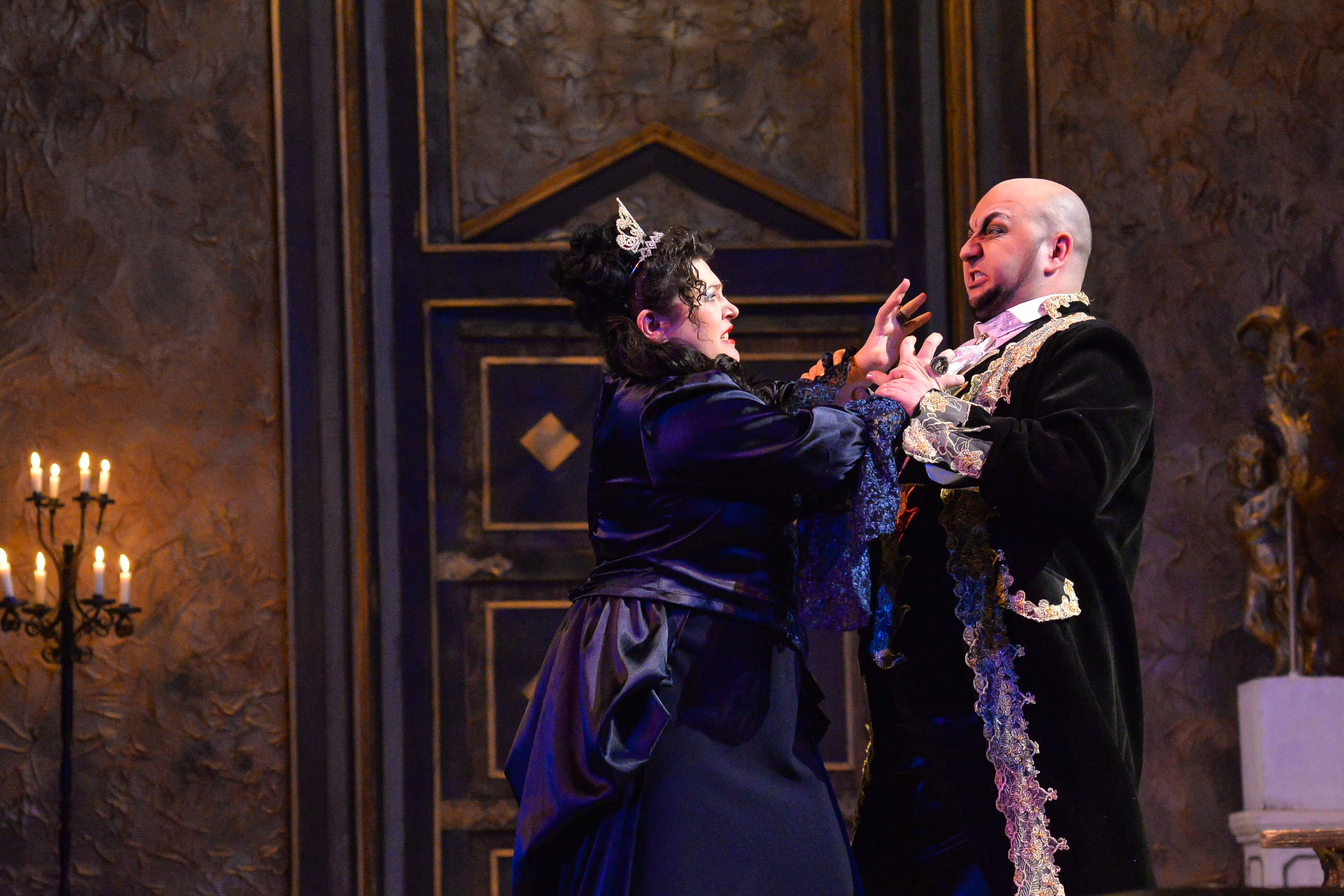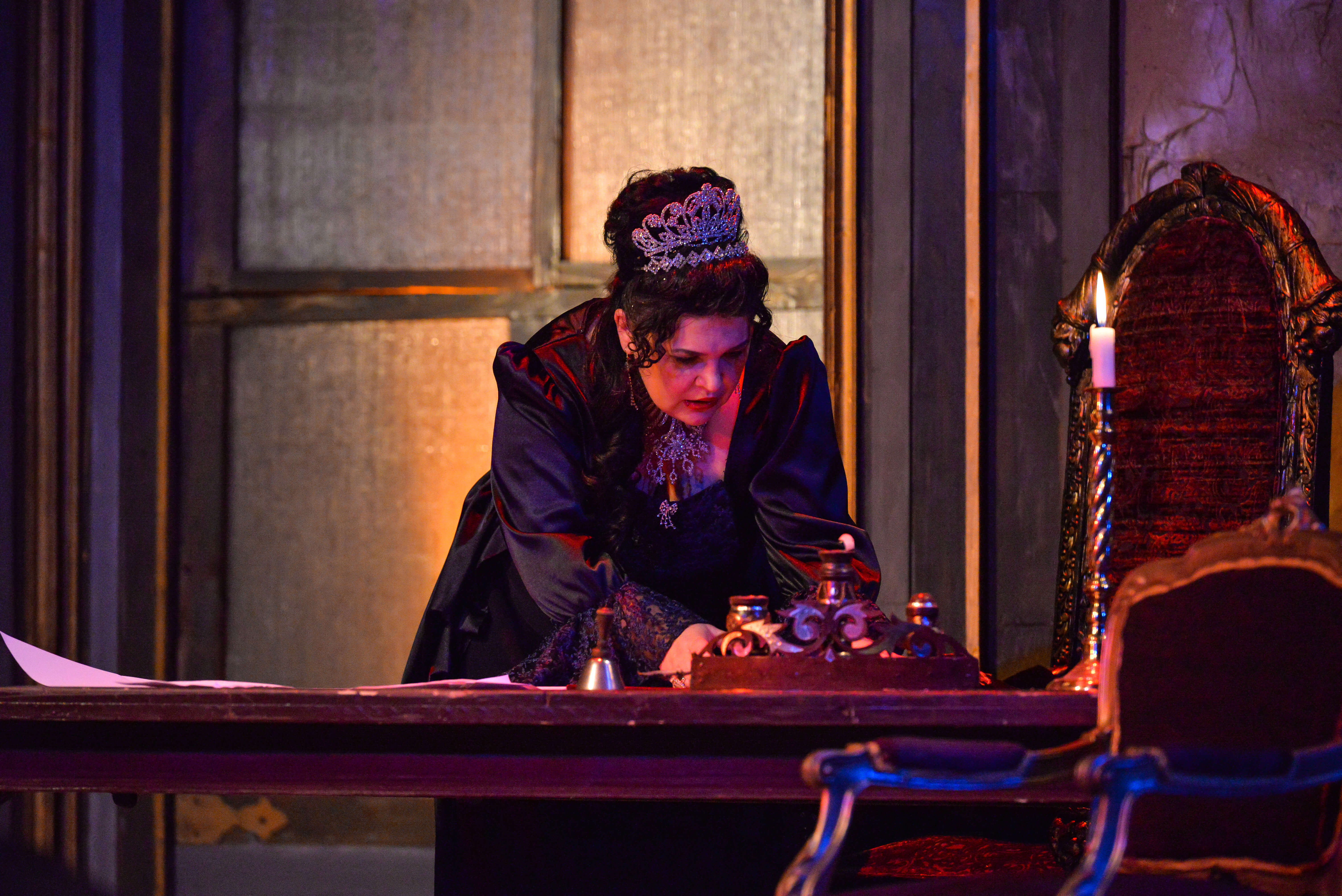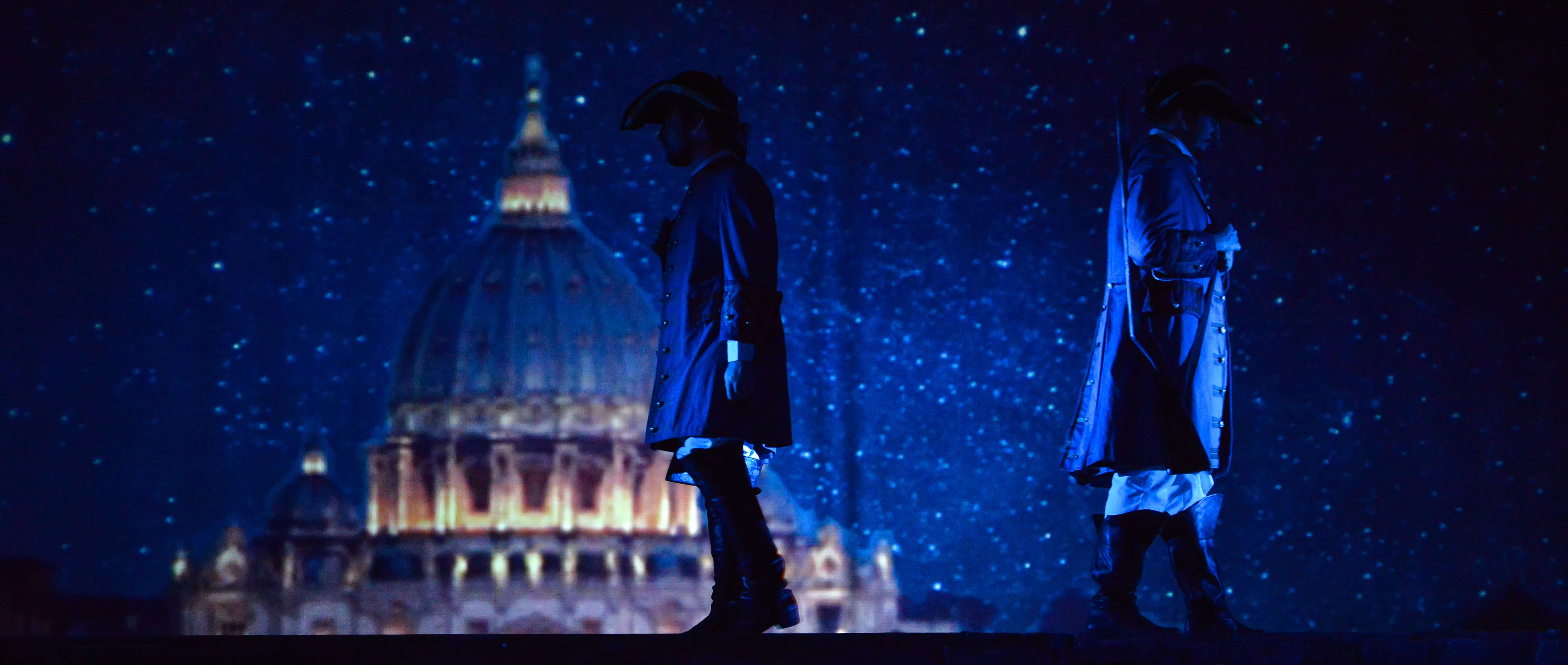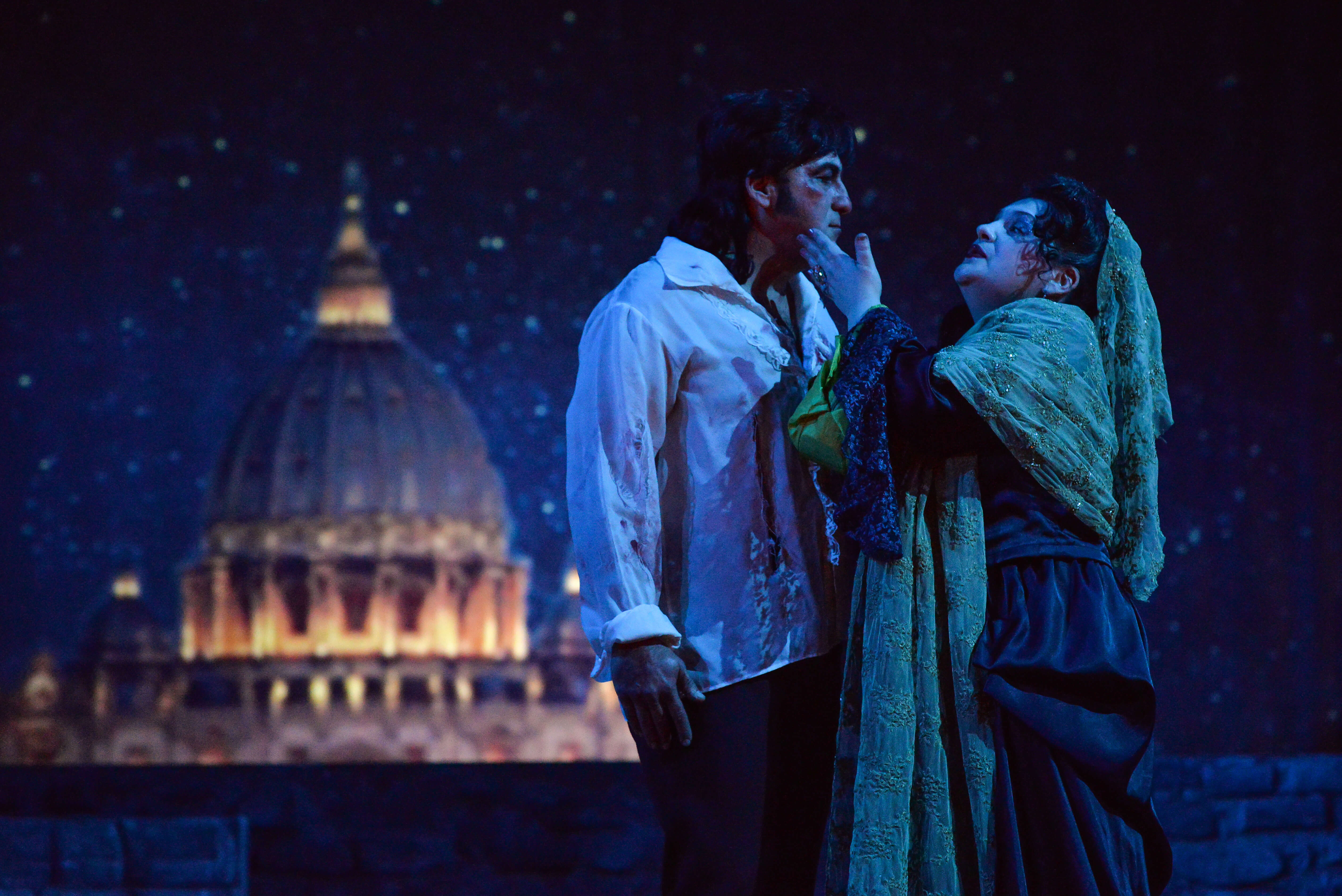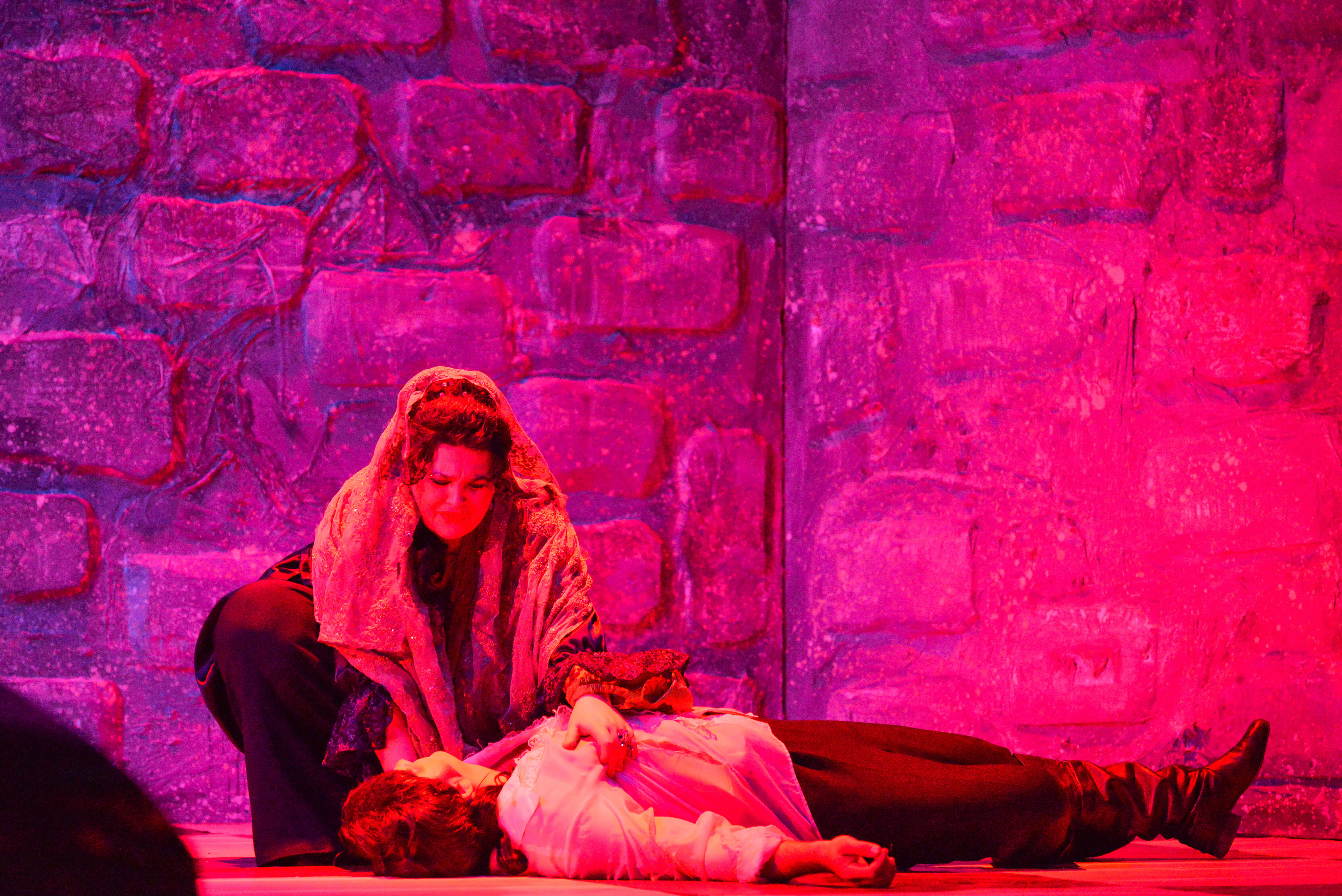
distribution
Artistic direction, lights and scenography (Scenographic adaptation after Andrei Șchiopu): Dan Lupea
Floria Tosca: Carmen Gurban
Mario Cavaradossi: Marius Vlad Budoiu
Scarpia: Valentin Vasiliu (guest)
Cesare Angelotti: Simonfi Sándor (debut)
Sacristanul: Petru Burcă
Spoletta: Florin Pop
Sciarrone: Sebastian Balaj (guest)
Temnicerul: Florin Sâmpelean
Păstorul: Karina Mitrana (guest)
The Orchestra și Chorus of The Romanian National Opera in Cluj-Napoca
„Junior VIP” Choir of The Romanian National Opera in Cluj-Napoca and ”Sigismund Toduță” Music College Cluj-Napoca
Conductor: Anca Mona Mariaș
Chorus master: Emil Maxim
Chorus conductor: Corneliu Felecan
Stage and backstage direction: Alina Simona Nistor
description
Opera in three acts on a libretto by Luigi Illica and Giuseppe Giacosa, after the drama La Tosca by Victorien Sardou
Recommended age limit: 9+
After seeing Victorien Sardou’s drama La Tosca, Puccini immediately asked the famous editor Giulio Ricordi to negotiate with the French writer the copyright, offered in exchange to Italian composer Alberto Franchetti. A year later, in 1894, the libretto of Franchetti’s future opera was ready to be presented to Sardou. However, a few months after, Franchetti gives up writing music for Tosca, a fact which determines Ricordi to offer the libretto to Puccini. Verdi’s power of persuasion was decisive in the composer’s decision to finally accept the project, even though he was offended because he was not the first to be offered…
The close revision of the libretto, made by Illica together with Giacosa, provided Puccini the basis for the most representative opera of his maturity style. Tosca highlights the composer’s ability to shape through musical language complex heroes, strong characters carried within a dramatic development with tragic end for every one of them. Neither singer Floria Tosca, fully committed to her feelings for painter Mario Cavaradossi, but extremely jealous, nor her lover – led by revolutionary feelings, capable to make the supreme sacrifice to protect his fellow Angelotti, nor the vile baron Scarpia – the chief of the pontifical police, strongly attracted to Tosca, whose favours he tries to obtain at all costs, can survive the turmoil of the political and romantic events which occur during the three acts, in locations that are specific to 1800’s Rome.
The world premiere from Teatro Costanzi, on 14 January 1900, brought the public a work whose popularity would maintain throughout time. According to information from the program Operabase, during 2007-2012 Tosca placed fifth in the top of played opera performances.
We are looking forward to seeing you discover it!
The performance has two breaks and ends around 9:30 p.m.

